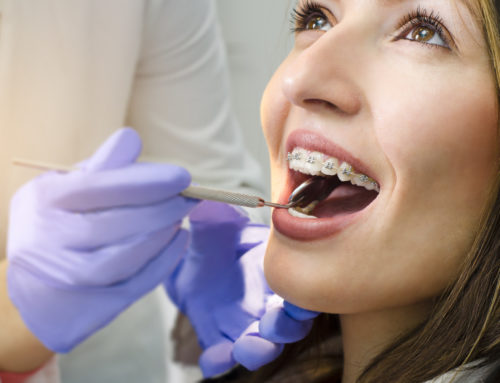Are you overdue for your routine dental care? Maybe you’re afraid of the dentist or you let a little too much time pass since your last dental check-up.
Do you really need to visit the dentist twice a year? The short answer is yes. The reasoning behind those regular dental visits is based on the impact of dental health throughout the body.
The obvious reason to see your dentist regularly is to keep your teeth healthy and clean. Dentists have an impact on health beyond your mouth, too. Even your self-esteem can get a boost.
Keep reading to find out more about why you should schedule those routine dental visits.
1. Removing Plaque
All the scraping the dental hygienists do at your cleaning removes plaque and tartar buildup from your teeth. Even with regular brushing, plaque can turn to tartar, which requires special dental tools to remove. That’s especially true in the hard-to-reach parts of your mouth that you might miss while brushing or flossing.
Removing tartar can help keep your mouth healthy. When left on your teeth, it can cause gum disease or decay. Regular visits cut down on your risks of those dental issues while also leaving your teeth looking better.
Going to the dentist frequently can make future cleanings more pleasant. Keeping the plaque and tartar under control takes much less work than removing a large buildup when you skip the dentist.
2. Checking for Decay
Cavities are common with 92% of adults having a cavity in a permanent tooth. Untreated decay affects 26% of adults.
Finding tooth decay early makes the filling process easier. It also reduces the chances of you losing the tooth because of advanced decay. Severe decay can even lead to bacterial infections, which can enter the bloodstream and cause issues in other parts of the body.
3. Identifying Dental Disease
Approximately 64.7 million Americans 30 or older suffer from periodontitis, which is an advanced type of gum disease. Your dentist can spot the early signs of gum disease during your regular exams. Dental professionals know what to look for and have a better view of hard-to-reach areas of your mouth than you do.
Catching dental disease early allows for treatment to keep the issue from getting worse. This can cut down on how much pain or discomfort you feel. It also reduces the extent of the treatments you need so handling the issues isn’t as difficult.
4. Spotting Other Health Issues
Your dentist isn’t just looking at your teeth and gums during your visits. Dentists examine your mouth, throat, tongue, neck, and face for signs of potential problems, including cancer.
You may miss potential signs of oral cancer, but your dentist knows what to look for inside your mouth. Catching oral cancer early improves your prognosis.
Your mouth may also reveal other issues going on in your body. Certain diseases, including diabetes, HIV/AIDs, and osteoporosis can cause oral health problems. Issues in your mouth may be an early sign of those medical conditions.
5. Getting Oral Health Advice
Searching your dental questions online provides plenty of results, but how do you know which information is valid? Your regular dental visits let you ask a professional your questions directly. You get the experience and insight of your dentist instead of sorting through potentially incorrect information online.
Asking your personal dentist can give you more tailored information. Your dentist knows your history and can see what’s going on in your mouth. That allows for more targeted information if you have a question or concern about your dental health.
6. Improving Overall Health
Dental health spreads beyond your mouth. If your dental hygiene suffers, it may lead to other health conditions, including heart disease. People with diabetes and gum disease may find it more difficult to keep blood sugar levels under control.
Good oral hygiene is also important during pregnancy. Periodontitis may lead to lower birth weight or premature birth. By keeping your mouth in good shape, you give your baby a better chance of being born healthy.
7. Building a Relationship
A regular dental exam schedule helps you build relationships with the dental hygienists and dentist. That can help you feel more comfortable with dental treatments, especially if you have dental anxiety.
Seeing the same dentist routinely can improve the quality of care. Your dentist has a record of your past visits and knows your dental history. That can help in identifying problems or making decisions for your dental care.
8. Improving Your Confidence
When your teeth look good, you feel better about yourself. You’re not embarrassed to flash your teeth when you smile or laugh. Teeth cleanings improve the look of your teeth and allow issues like decay to be fixed early before they affect the look of your smile.
Regular dental cleanings are also important in fighting bad breath. Gum disease or even food remnants stuck in your teeth can cause your breath to smell bad. A professional dental visit can correct those issues to improve your breath, which makes you feel more confident in conversations.
9. Saving Money
Americans spent $124 billion on dental procedures in 2016. Even with dental insurance, you’ll still pay at least a portion of dental procedures you need to have done. With routine dental care, you can avoid many of those expensive procedures.
Preventative dental care is much more affordable than paying for fillings, crowns, and other more extensive dental work. Dental insurance typically pays for a checkup every six months, which is the recommended dental visit schedule.
By going twice a year, you let less time pass, so your dentist is better able to spot problems earlier. Handling issues that do arise early is more cost-effective than waiting until they become major problems.
Schedule Routine Dental Care
Routine dental care does so much more than keep your teeth clean. It keeps your mouth and overall body healthier. Plus, it makes you feel better about yourself.
If it’s been a while since your last dentist visit, we can help. We offer dental care with no pressure, fear, or judgement. Contact us today to schedule an appointment.



